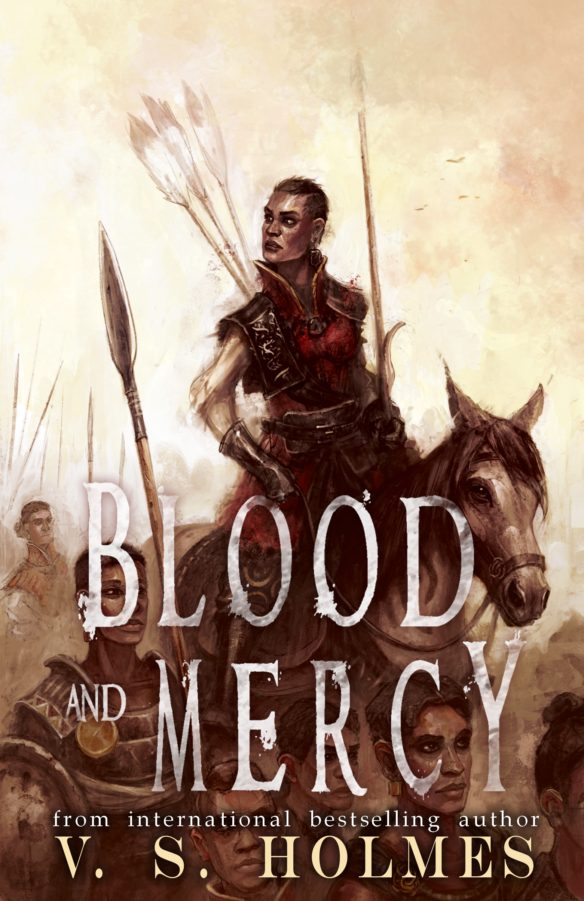
Guest Post by V. S. Holmes: Science Fiction Fantasy as a genre is known for tackling massive scopes and complicated settings, from Blade Runner’s seedy cyberpunk cities to the galactic warfare in Ender’s Game. In the past decade, however, sci-fi has undergone a tonal shift from action-packed pages and explosion-filled screens to creeping subtlety. While blockbuster action films and space marines are still fun fan favorites, focus has shifted to reflect the audiences’ deeper understanding of our own world–and how it inspires SFF world building.
All genres rely on the reader for a piece of the experience. Art’s subjectivity lies in the fact that what a reader brings to the table doesn’t always fit with the framework an author crafted. Sci-fi and horror rely on a much larger contribution than many other genres. The most powerful books and films in the genre, both modern and classic, are those that trust their audience and respect them enough to toss an intricate ball of science or magic and social questions with a wink and say, “your turn.”
This is where subtlety’s power lies. Bombastic scenes and fire and explosions rock your system by overloading it–arguably mimicking the disorienting experience of firefights and disasters. Slow suspense and easing into a sense of, well, unease, puts the ball in the viewer’s court in a vastly more intimate way. We see this in the slightly-to-the-left world of Black Mirror, each episode extrapolating from its quiet world building. The only limit to the scene’s impact is our own imaginations. We see this effect across most fiction, from thrillers to historical dramas, but science fiction and horror lend themselves to these quiet tools on a deeper level, in part because that is where their roots lie.
Sci-fi’s conception sits in the speculative, the parent of all human innovation: what if? When crafting these stories, we build a huge framework for this question, leaping from concept to concept in an augmented version of Nightmare Before Christmas’s “What’s This?” While we might tease and tweak and slip in hundred clues as to how we, as authors, would respond to that question, the answer is ultimately up to the reader.
This is powerful because when we encounter analogous situations in our own world, we find their foundations in insidious complacency, atrocities protected by corrupt laws, and thousands who look the other way. That same uncertainty whether societies can change carries over and lends credence to the fictional worlds we create and consume.
I’ve seen readers remark on the accurate, slow-burn warfare in my Blood of Titans world, and how it leans away from fast-paced LitRPG and sweeping battles present in many of the genre’s classics. This is because war and revolutions aren’t won by a sudden cataclysmic battle. Most end with them, yes, but what sows the seeds for victory is actually that steady, quiet drive and the determined innovation of the unseen populace.
When writing, I strive to dig into the how and why behind the flashy excitement of divine battles and massive rebellions, and the part of craft that, for me, is a bit like volleying postulations between myself and my audience. While my prose might languish in the lyrical or rich, my worlds are built on the same understated complexity as our own.
My science fiction Starsedge: Nel Bently series is louder than my fantasy, on the surface. I love my dramatic shuttle launches and Rubik’s-cube mechanical planets as much as the next nerd! But under the veneer of those explosions and fire-brand personalities, is the question of where we are going, how we can possibly get there from the dark crossroad where we currently stand. With questions like these, I turn to my community, to my readers, and to the thousands of unheard giants who brought us this far.
So, why is subtlety seeing a resurgence in popularity? Tracing back some of the horrific or awe-inspiring concepts in world building, it’s no surprise that we find they mirror events in our own world. So many marginalized voices write incredibly impactful speculative works because we know there isn’t always a happy ending. We know how deep and knotted the roots of these systems reach in our own world because we’ve seen the underbelly. We’re privy to the depths our own antagonists will go. Some of the most powerful works of science fiction are woven by those exploring oppression–the Alien IP, specifically Prometheus, is an incredible analogy for abortion, and Viscera is a SFF made all the more powerful by the transgender perspective of its author, Gabby Squalia. As a disabled person and trauma survivor, seeing Furiosa’s nuanced character in a world as hard as cinematic as Mad Max brought so much inspiration.
As marginalized creators receive a long-overdue focus in the mainstream, we return to the genre’s genesis. After all, sci-fi was birthed by the likes of Margaret Cavendish (The Blazing World) and Mary Shelley (Frankenstein and The Last Man), marginalized for their gender, and many more who had to imagine a world in which our voices are heard.
The return of these themes in sci-fi is a reflection of what we see in the world today. As nations are rocked with change and communities reach a boiling point, we look back on the steps it took to get this far, the steps still needed to move forward. Where better to search for those roadmaps than fiction that speculates on where we could go or what communities we will build from the shambles of this one? The science fiction that speaks to me the most, both as a creator and an audience, are the ones that explore not only the terror that so many of us experience, but our power, our agency, and the incredible future we can create.
Like my fiction, I’ll end this with a postulation: where better to seek answers to “what if?” than the genre asking that question all along?

V. S. HOLMES is an international bestselling author. They created the Reforged series and the Nel Bently Books. Smoke and Rain, the first book in their fantasy quartet, won New Apple Literary’s Excellence in Independent Publishing Award in 2015 and a Literary Titan Gold Award in 2020. In addition, they have published short fiction in several anthologies.
When not writing, they work as a contract archaeologist throughout the northeastern U.S. They live in a Tiny House with their spouse, a fellow archaeologist, their not-so-tiny dog, and own too many books for such a small abode. As a disabled and queer human, they work as an advocate and educator for representation in SFF worlds.
Blood and Mercy, the final book in the Blood of Titans: Reforged series hits shelves June 27th 2020
V. S. HOLMES LINKS:
- Site: www.vsholmes.com
- Twitter: https://twitter.com/VS_Holmes
- Facebook: https://www.facebook.com/authorvsholmes/
- Instagram: https://www.instagram.com/vs_holmes/
- Goodreads: https://www.goodreads.com/vs-holmes
- Bookbub: https://www.bookbub.com/profile/v-s-holmes
- Universal Pre Order: books2read.com/bloodandmercy
Discover more from File 770
Subscribe to get the latest posts to your email.
